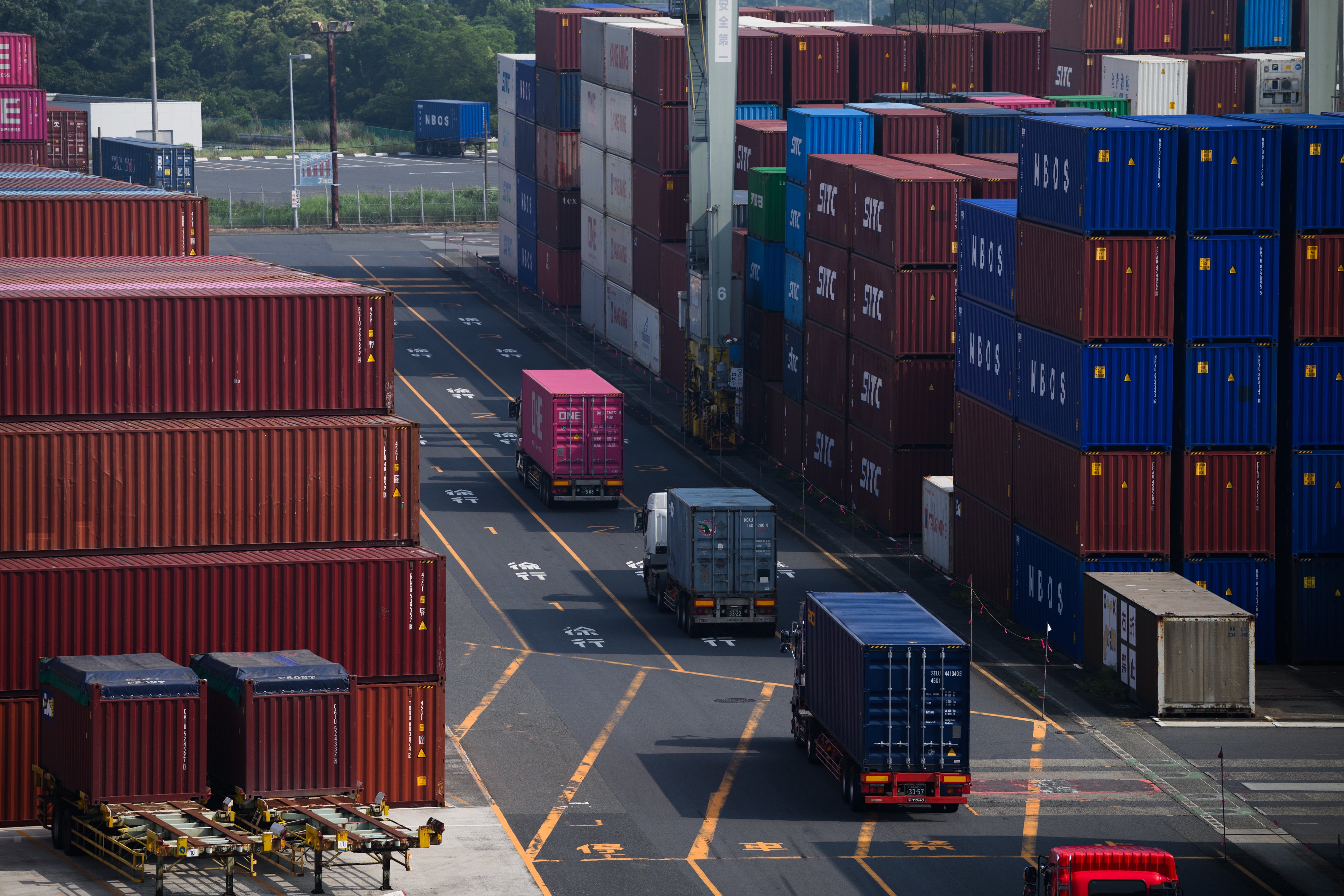
- President Trump announced a trade deal with Japan setting tariffs on imports at 15% and $550bn investment.
- Deal includes Japan opening its market to US automobile and agricultural imports without detailed specifics.
- Japan's trade surplus with the US is largely from cars and parts, accounting for around 80% of the surplus.
President Donald Trump said he reached a trade deal with Japan that will set tariffs on Japanese imports at 15% and see the key American ally invest $550 billion into the US.
“I just signed the largest trade deal in history — I think maybe the largest deal in history — with Japan,” Trump said at an event at the White House on Tuesday after announcing the deal on social media. “And that was done with Japan. They had their top people here and we worked on it long and hard and it's a great deal for everybody.”
Trump said on Truth Social that the pact calls for Japan to “open their Country” to US automobile imports, as well as additional agricultural imports, without specifying further. Trump has repeatedly zeroed in on auto trade as he criticizes trade imbalances with the country. Around 80% of Japan's trade surplus with the US is in cars and car parts.
Additional details of the preliminary agreement with Japan — including, critically, if Japanese automobiles and parts would receive a carve-out from separate 25% tariffs — were not immediately available. Trump has previously announced trade frameworks without many specifics only for the White House to provide details days and weeks later, as terms are hammered out.

Trump indicated at the event with Republican lawmakers at the White House that he also expects to sign a deal on a joint venture with Japan to export liquefied natural gas from Alaska.
White House spokespeople did not immediately respond to requests for more information. The yen fluctuated in early Tokyo trading after briefly strengthening on the news, while Japanese stocks and US equity futures edged higher.
Deadline Looming
The deal with Japan also comes hours after Trump announced he had reached an agreement with the Philippines, setting a 19% tariff on the country's exports.The flurry of activity comes days before the president's Aug. 1 deadline for imposing so-called “reciprocal” tariffs that will hit dozens of trading partners.
Trump first announced the plan for sweeping tariffs on nearly every US trading partner in April, only to quickly put them on hold for 90 days amid market backlash in order to work out agreements. But that stretch saw the US finalize only a handful of deals and Trump instead moved to unilaterally impose rates on countries and blocs before the looming deadline.
While the US president and his advisers initially suggested they planned to hold concurrent talks with trading partners, Trump has shown little patience for back-and-forth negotiations, instead saying his preference was to just set rates for other economies. In recent weeks, he has sent a slew of letters setting tariff levels and is also moving ahead on industry-specific levies that will target sectors such as copper, semiconductors and pharmaceutical drugs.
While talks continue with major economies including the European Union and India, Trump said some 150 smaller countries will be hit with a blanket rate of between 10 and 15%.
‘Come To The Table'
Trump's announcement on Japan came shortly after Japanese public broadcaster NHK reported that the country's chief trade negotiator Ryosei Akazawa had visited the White House to discuss the deal with Trump. Akazawa met earlier Tuesday with US Treasury Secretary Scott Bessent, who earlier told Fox Business that the negotiations were “going very well.”
“They've really come to the table,” Bessent said.
Trump originally threatened to place a 24% tariff on Japanese imports earlier this year, a proposal viewed as “extremely disappointing” by Prime Minister Shigeru Ishiba. He later amended that threat to 25% in a letter earlier this month.
The issue of automobiles has been a particular sticking point in trade negotiations between the two countries.
US trade negotiators have pushed Japan and other countries to accept cars built to US federal motor vehicle safety standards, rather than subjecting them to differing requirements. Meanwhile, negotiators from Japan and other countries have pushed for exemptions to Trump's existing 25% levies on autos and auto parts.
It was not immediately clear Tuesday if any such carveout would be established for Japan, like a planned tariff-rate quota for steel imported from the UK.
Japanese-based car companies have made significant plans to invest in the US, including Isuzu Motors Ltd.'s $280 million investment in a new facility in South Carolina, and Toyota Motor Corp.'s $88 million commitment to boost production of hybrid vehicles. The US has also offered tariff relief for auto companies that assemble cars in American facilities, part of a broader effort to bring offshore manufacturing to the US.
The talks came after eight rounds of negotiations, and a week after Bessent visited Japan to lead the US delegation to the World Expo in Osaka. Japan had its upper house elections on Sunday, and while losses there significantly weakened Ishiba's domestic position, the prime minister has cited the trade talks as one of the reasons why he needs to stay on.
Essential Business Intelligence, Continuous LIVE TV, Sharp Market Insights, Practical Personal Finance Advice and Latest Stories — On NDTV Profit.























